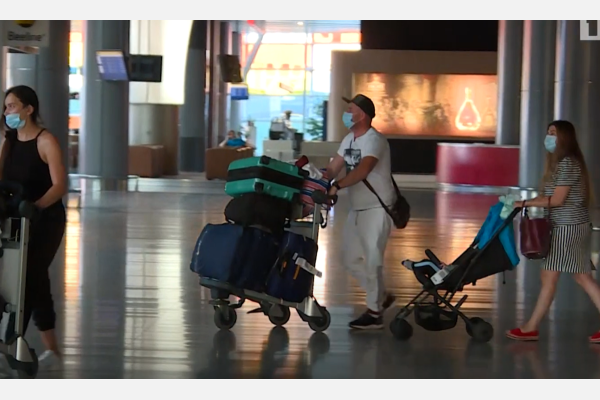Repository of Practices

Government Program of Primary Assistance for Reintegration of Nationals Returning to the Republic of Armenia (including Compulsory Returnees)
Secondary GCM Objectives
Dates
Type of practice
Summary
The purpose of the Government program of primary assistance for reintegration of nationals returning to the Republic of Armenia is to provide primary assistance to the Republic of Armenia nationals returning (including involuntary) to Armenia to ensure their future full and sustainable reintegration. The program has two components:
• Provision of information support and needs based referral;
• Provision of temporary rental subsidy.
Migrants returning to Armenia face several reintegration challenges such as awareness, employment, housing, socioeconomic, psychological, educational, cultural and other issues. The first component on information and referral support envisages number of measures, including:
• Information on the legal framework, lists of health-care providers, social assistance frameworks, the pension system, information on compulsory military service, customs exceptions, documentation challenges (passports, dual citizenship);
• Referrals relating to health-care problems;
• Referrals of vulnerable groups such as unaccompanied minors and those with disabilities.
The second component of the program envisages a subsidy for an apartment rent. The subsidy in the amount of 60,000 AMD (120$) is for a 6-month period. The beneficiaries of the second component are the Armenian returning nationals who have lived in another country for at least one year and applied to the Program within three months after the return, including:
• Returnees under the readmission agreements;
• Armenian nationals deported or expelled from a foreign country.
• Voluntary returnees of multi-child families (with 4 or more children); • Voluntary returnees with disabilities.
Children, along with women, the elderly, persons with disabilities and families, are identified as targets of specific measures. The Programm identifies the needs for gender and age-sensitive methods to assess needs. Issues of accommodating adults with disabilities and elderly (age of 65 and above) in relevant care centers are addressed in the Programm.
Organizations
Main Implementing Organization(s)
Detailed Information
Partner/Donor Organizations
Benefit and Impact
Since program launch, citizens lodged numerous applications for the house rent subsidy, and during 19 March 2020 until 31 December 2021, 38 families (88 persons) benefited from the Program. They are Armenian nationals returned from Sweden, France, Russia, Austria, Germany, Switzerland and Turkey.
Besides, since the summer of 2021, a full-time psychologist has been working in assisting of returnees. The main tasks of the psychologist are: psychological support and/or psychotherapy to returnees, network building (mapping) of mental health care services in Armenia, and providing support, training and intervention sessions to the counsellors and case workers at the desk. Psychologist consults with the beneficiary in the case he/she requests a psychological support after the counsellor’s proposition. Most of the beneficiaries requesting a psychological consultation are forced returnees with post-traumatic symptoms and high anxiety level. If the regular psychological sessions are not possible for the beneficiary, the psychologist tries to find a mental health specialist located near to the beneficiaries’ location. The psychologist has met more than dozen beneficiaries needing psychological support.
Key Lessons
1) Families with four or more children; and
3) Persons with disabilities.
Recommendations(if the practice is to be replicated)
Innovation
Additional Resources
Media
Հարկադիր Հայաստան վերադարձող քաղաքացիները կստանան փոխհատուցում
Date submitted:
Disclaimer: The content of this practice reflects the views of the implementers and does not necessarily reflect the views of the United Nations, the United Nations Network on Migration, and its members.
More Related Practices:
- Comité de Cultura de Paz y Derechos Humanos
- Strengthening the capacities and frameworks to collect data and evidence on migration, the environment and climate change (MECC) in Mexico
- Encuesta Nacional Migrante de la Argentina (ENMA)
- A Gender-Focused Qualitative Study on Health Care-Seeking Behavior and Access to Tuberculosis Treatment among Mobile Populations from Moldova
- IOM’s Regional Programme Strengthens the Protection of Child Victims across North Africa and Key Routes
Peer Reviewer Feedback:
*References to Kosovo shall be understood to be in the context of United Nations Security Council resolution 1244 (1999).
Newsletter
Subscribe to our newsletter.